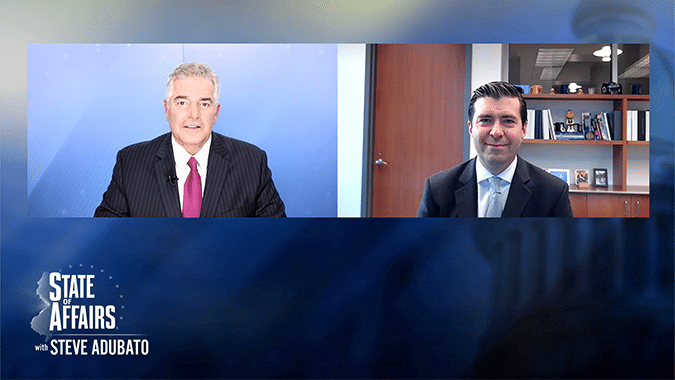NJBIA and the State Chamber of New Jersey jointly hosted a virtual Taxation and Economic Development Policy Committee meeting last week to discuss economic and budgetary policy updates in New Jersey.
The event featured Assemblyman Herb Conaway Jr. (D-7) and Matthew L. Setzer, an associate at Reed Smith State Tax Group.
As a member of the Assembly budget committee, Conaway opened by stating that both the Legislature and Gov. Phil Murphy have a commitment to allow the Corporate Business Tax (CBT) surcharge to sunset as scheduled this year. However, Conaway mentioned that the committee is still listening to concerns regarding the loss of revenue affiliated with the CBT surcharge’s expiration.
Still, Conaway noted that New Jersey has a healthy surplus and should be better prepared in the event of an economic downturn than in previous years.
Beyond the sunset of the CBT surcharge, Conaway also stated that the committee needs to prioritize workforce development and innovation within all sectors of the economy. The cost of labor is continuing to rise as businesses are struggling to fill positions.
According to the assemblyman, as a direct result of the pandemic, employees are demanding more flexibility in the workplace and their schedules. In order to combat these issues, there needs to be greater investment in education, training standards, incubators, and innovation centers.
Setzer brought the conversation back to the CBT and the CBT reform bill mentioned in Governor’s Budget-in-Brief and supported by both NJBIA and the State Chamber, A–5323/S-3737. The bill improves New Jersey’s corporate tax competitiveness through improving the tax treatment of GILTI (foreign income) and NOLs (net operating losses) among many other changes.
Based on Setzer’s report, prior net operating losses are currently siloed, but A-5323/S-3737 attempts to solve this issue by implementing a favorable change for taxpayers allowing separate members to share prior NOLs with other members in a group to offset group tax liabilities.
It also reverts the ordering of NOL and Dividends Received Reductions (DRD). Historically, the NOL deduction came before DRD, but this legislation will have the DRD before the NOL deduction. The bill also effectively taxes 5% of GILTI instead of 50%, bringing us in line with neighbor states instead of currently being an outlier in the nation in how we tax corporate foreign income.
Amirah Hussain, Director of Government Relations for the State Chamber, gave an update on bills that the committee has been supporting that were signed into law by the Governor. These bills included three bills from Assembly Speaker Craig Coughlin’s small business bill package: A-4749, A-4748, and A-4753.
Hussain reported that the committee was also happy to see bill A-573, the expedited local construction inspection bill, be signed into law. Lastly, Hussain stated that the committee is continuing to monitor S-3757 mimics federal small business tax deduction and allows for small business owners to claim a similar deduction at the state level in 2023.

